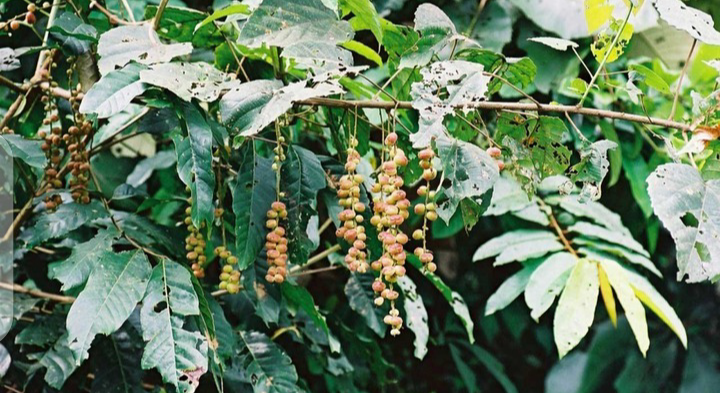UK study confirms local Nigerian plant cures Sickle Cell


By Dayo Badmus,
A new study from the United Kingdom has confirmed that a common plant from West Africa works as a treatment for sickle cell disease.
Scientists at Aberystwyth University, in Wales, isolated a chemical in the Alchornea cordifolia plant, also known as the Christmas Bush, which could help relieve the symptoms of the life-threatening and painful disease suffered by 15,000 people in the United Kingdom (U.K.).
The results were published in the Journal of Clinical Medicine.
Botanically called Alchornea Cordifolia, it is called Oje in Ebira-Etuno; Uwonmwe in Edo; Mbom in Efik; Tahi in Gwari; Bambani or Bombana in Hausa; Ubebe or Ububo in Igbo; Ipain in Ijaw; Ukpaoromi in Yekhee; and Epa or Ipan-esin in Yoruba.
Alchornea Cordifolia is a perennial evergreen shrub that belongs to the family Euphorbiaceae.
It is known as dove wood in English.
In sufferers of sickle cell anaemia, red blood cells change from their usual soft disc shape to a curved “sickle” shape and also become sticky and hard, which means they don’t move properly around the body.
Blood is blocked from flowing, particularly to joints, the chest and abdomen, leading to severe pain, swelling of hands and feet, delayed growth and problems with eyesight, among other symptoms.
It can lead to stillbirth and is also fatal in some cases.
A genetic disease, it is more common among people of African, Mediterranean and Middle Eastern descent, with over 20 million people around the world affected.
In Nigeria, around 150,000 children are born with sickle cell anaemia each year.
Half of them are likely to die before their 10th birthday.
Juice from the plant, which grows widely across the tropical regions of Africa, has been used in a “blood tonic” as a traditional remedy for generations, but it has never been scientifically proven to work until now.
A researcher at the university who suffers from the condition herself, Dr. Olayemi Adeniyi, interviewed traditional healers from South Western Nigeria, who said the plant had been used for years as a treatment.
Leaves are crushed manually or blended, and can also be brewed into a tea.
Adeniyi said the research had shown that quercitrin, the active ingredient in the plant, could both prevent and reverse the “sickling” caused by the disease.











